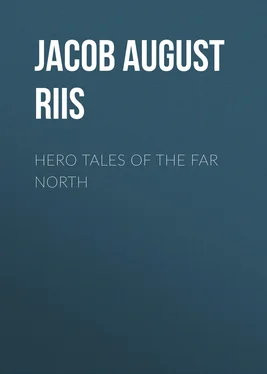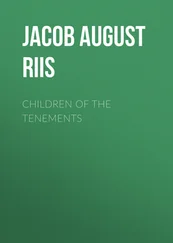Jacob August Riis - Hero Tales of the Far North
Здесь есть возможность читать онлайн «Jacob August Riis - Hero Tales of the Far North» — ознакомительный отрывок электронной книги совершенно бесплатно, а после прочтения отрывка купить полную версию. В некоторых случаях можно слушать аудио, скачать через торрент в формате fb2 и присутствует краткое содержание. Жанр: foreign_prose, История, foreign_edu, foreign_antique, на английском языке. Описание произведения, (предисловие) а так же отзывы посетителей доступны на портале библиотеки ЛибКат.
- Название:Hero Tales of the Far North
- Автор:
- Жанр:
- Год:неизвестен
- ISBN:нет данных
- Рейтинг книги:4 / 5. Голосов: 1
-
Избранное:Добавить в избранное
- Отзывы:
-
Ваша оценка:
- 80
- 1
- 2
- 3
- 4
- 5
Hero Tales of the Far North: краткое содержание, описание и аннотация
Предлагаем к чтению аннотацию, описание, краткое содержание или предисловие (зависит от того, что написал сам автор книги «Hero Tales of the Far North»). Если вы не нашли необходимую информацию о книге — напишите в комментариях, мы постараемся отыскать её.
Hero Tales of the Far North — читать онлайн ознакомительный отрывок
Ниже представлен текст книги, разбитый по страницам. Система сохранения места последней прочитанной страницы, позволяет с удобством читать онлайн бесплатно книгу «Hero Tales of the Far North», без необходимости каждый раз заново искать на чём Вы остановились. Поставьте закладку, и сможете в любой момент перейти на страницу, на которой закончили чтение.
Интервал:
Закладка:
The Eskimos soon came to know that Egede was their friend. When his boat entered a fjord where they were fishing, and his rowers shouted out that the good priest had come who had news of God, they dropped their work and flocked out to meet him. Then he spoke to a floating congregation, simply as if they were children, and, as with Him whose message he bore, "the people heard him gladly." They took him to their sick, and asked him to breathe upon them, which he did to humor them, until he found out that it was an Angekok practice, whereupon he refused. Once, after he had spoken of the raising of Lazarus from the dead, they took him to a new-made grave and asked him, too, to bring back their dead. They brought him a blind man to be healed. Egede looked upon them in sorrowful pity. "I can do nothing," he said; "but if he believes in Jesus, He has the power and can do it."
"I do believe," shouted the blind man: "let Him heal me." It occurred to Egede, perhaps as a mere effort at cleanliness, to wash his eyes in cognac, and he sent him away with words of comfort. He did not see his patient again for thirteen years. Then he was in a crowd of Eskimos who came to Godthaab. The man saw as well as Egede.
"Do you remember?" he said, "you washed my eyes with sharp water, and the Son of God in whom I believed, He made me to see."
Children the Eskimos were in their idolatry, and children they remained as Christians. By Egede's prayers they set great store. "You ask for us," they told him. "God does not hear us; He does not understand Eskimo." Of God they spoke as "Him up there." They believed that the souls of the dead went up on the rainbow, and, reaching the moon that night, rested there in the moon's house, on a bench covered with the white skins of young polar bears. There they danced and played games, and the northern lights were the young people playing ball. Afterward they lived in houses on the shore of a big lake overshadowed by a snow mountain. When the waters ran over the edge of the lake, it rained on earth. When the "moon was dark," it was down on earth catching seal for a living. Thunder was caused by two old women shaking a dried sealskin between them; the lightning came when they turned the white side out. The "Big Nail" we have heard of as the Eskimos' Pole, was a high-pointed mountain in the Farthest North on which the sky rested and turned around with the sun, moon, and stars. Up there the stars were much bigger. Orion's Belt was so near that you had to carry a whip to drive him away.
The women were slaves. An Eskimo might have as many wives as he saw fit; they were his, and it was nobody's business. But adultery was unknown. The seventh commandment in Egede's translation came to read, "One wife alone you shall have and love." The birth of a girl was greeted with wailing. When grown, she was often wooed by violence. If she fled from her admirer, he cut her feet when he overtook her, so that she could run no more. The old women were denounced as witches who drove the seals away, and were murdered. An Eskimo who was going on a reindeer hunt, and found his aged mother a burden, took her away and laid her in an open grave. Returning on the third day, he heard her groaning yet, and smothered her with a big stone. He tried to justify himself to Egede by saying that "she died hard, and it was a pity not to speed her." Yet they buried a dog's head with a child, so that the dog, being clever, could run ahead and guide the little one's steps to heaven.
They could count no further than five; at a stretch they might get to twenty, on their fingers and toes, but there they stopped. However, they were not without resources. It was the day of long Sunday services, and the Eskimos were a restless people. When the sermon dragged, they would go up to Egede and make him measure on their arms how much longer the talk was going to be. Then they tramped back to their seats and sat listening with great attention, all the time moving one hand down the arm, checking off the preacher's progress. If they got to the finger-tips before he stopped, they would shake their heads sourly and go back for a remeasurement. No wonder Egede put his chief hope in the children, whom he gathered about him in flocks.
For all that, the natives loved him. There came a day that brought this message from the North: "Say to the speaker to come to us to live, for the other strangers who come here can only talk to us of blubber, blubber, blubber, and we also would hear of the great Creator." Egede went as far as he could, but was compelled by ice and storms to turn back after weeks of incredible hardships. The disappointment was the more severe to him because he had never quite given up his hope of finding remnants of the ancient Norse settlements. The fact that the old records spoke of a West Bygd (settlement) and an East Bygd had misled many into believing that the desolate east coast had once been colonized. Not until our own day was this shown to be an error, when Danish explorers searched that coast for a hundred miles and found no other trace of civilization than a beer bottle left behind by the explorer Nordenskjold.
Egede's hope had been that Greenland might be once more colonized by Christian people. When the Danish Government, after some years, sent up a handful of soldiers, with a major who took the title of governor, to give the settlement official character as a trading station, they sent with them twenty unofficial "Christians," ten men out of the penitentiary and as many lewd and drunken women from the treadmill, who were married by lot before setting sail, to give the thing a halfway decent look. They were good enough for the Eskimos, they seem to have thought at Copenhagen. There followed a terrible winter, during which mutiny and murder were threatened. "It is a pity," writes the missionary, "that while we sleep secure among the heathen savages, with so-called Christian people our lives are not safe." As a matter of fact they were not, for the soldiers joined in the mutiny against Egede as the cause of their having to live in such a place, and had not sickness and death smitten the malcontents, neither he nor the governor would have come safe through the winter. On the Eskimos this view of the supposed fruits of Christian teaching made its own impression. After seeing a woman scourged on shipboard for misbehavior, they came innocently enough to Egede and suggested that some of their best Angekoks be sent down to Denmark to teach the people to be sober and decent.
There came a breathing spell after ten years of labor in what had often enough seemed to him the spiritual as well as physical ice-barrens of the North, when Egede surveyed a prosperous mission, with trade established, a hundred and fifty children christened and schooled, and many of their elders asking to be baptized. In the midst of his rejoicing the summer's ship brought word from Denmark that the King was dead, and orders from his successor to abandon the station. Egede might stay with provisions for one year, if there was enough left over after fitting out the ship; but after that he would receive no further help.
When the Eskimos heard the news, they brought their little children to the mission. "These will not let you go," they said; and he stayed. His wife, whom hardship and privation and the lonely waiting for her husband in the long winter nights had at last broken down, refused to leave him, though she sadly needed the care of a physician. A few of the sailors were persuaded to stay another year. "So now," Egede wrote in his diary when, on July 31, 1731, he had seen the ship sail away with all his hopes, "I am left alone with my wife and three children, ten sailors and eight Eskimos, girls and boys who have been with us from the start. God let me live to see the blessed day that brings good news once more from home." His prayer was heard. The next summer brought word that the mission was to be continued, partly because Egede had strained every nerve to send home much blubber and many skins. But it was as a glimpse of the sun from behind dark clouds. His greatest trials trod hard upon the good news.
Читать дальшеИнтервал:
Закладка:
Похожие книги на «Hero Tales of the Far North»
Представляем Вашему вниманию похожие книги на «Hero Tales of the Far North» списком для выбора. Мы отобрали схожую по названию и смыслу литературу в надежде предоставить читателям больше вариантов отыскать новые, интересные, ещё непрочитанные произведения.
Обсуждение, отзывы о книге «Hero Tales of the Far North» и просто собственные мнения читателей. Оставьте ваши комментарии, напишите, что Вы думаете о произведении, его смысле или главных героях. Укажите что конкретно понравилось, а что нет, и почему Вы так считаете.












